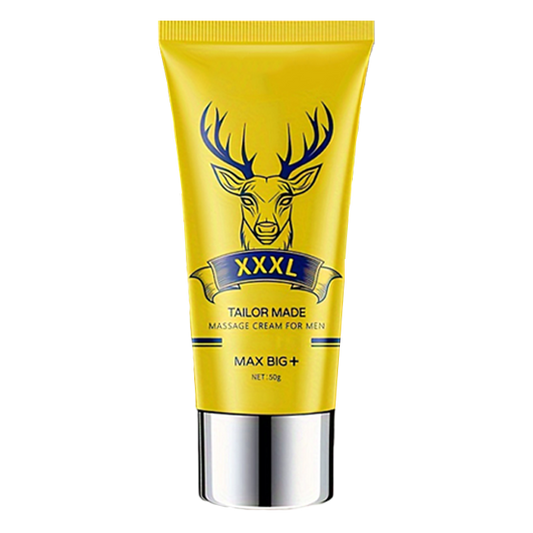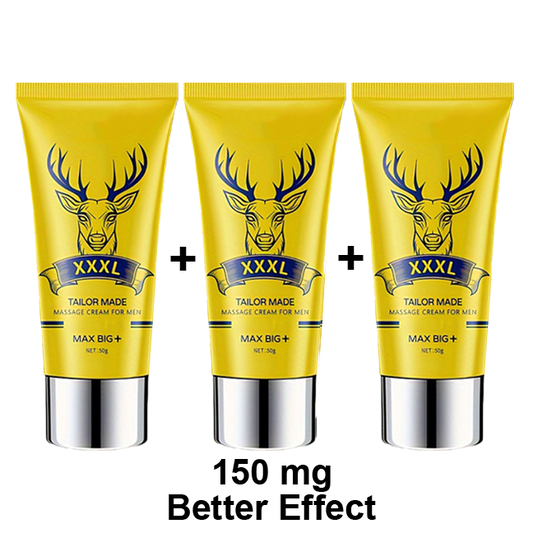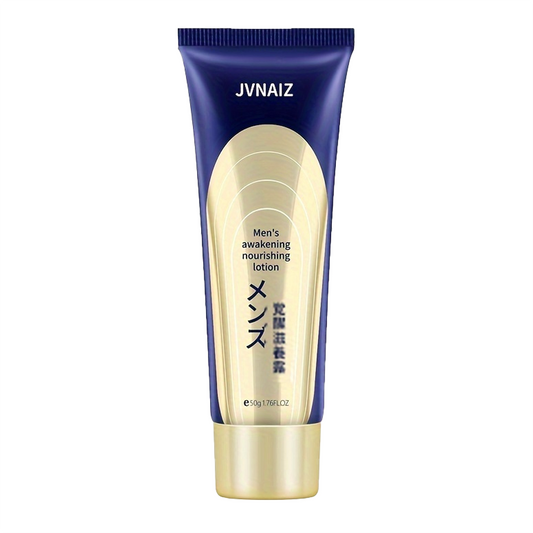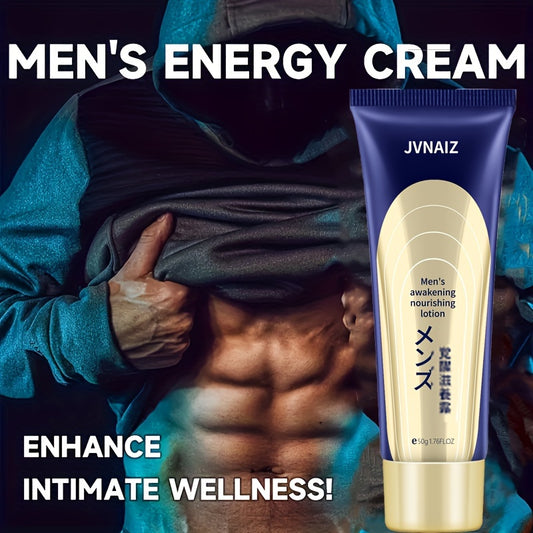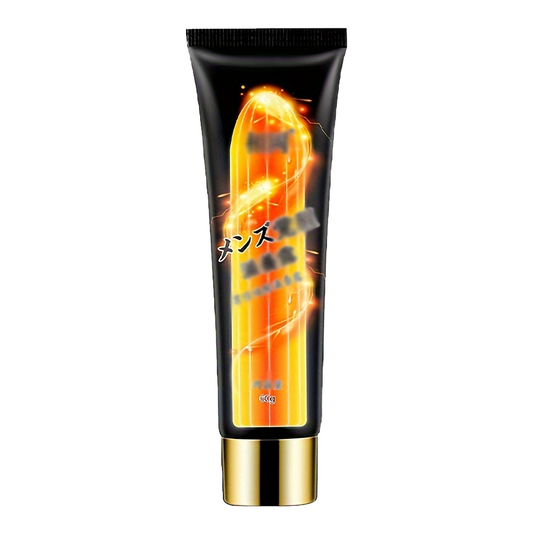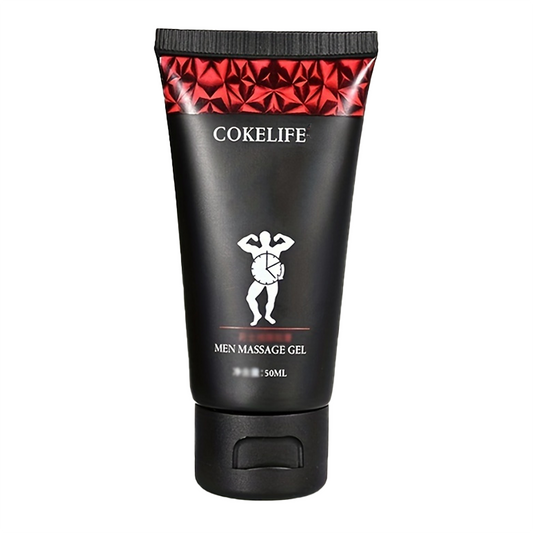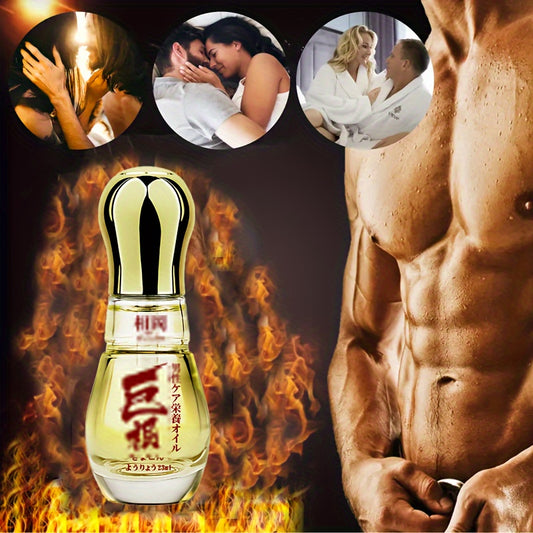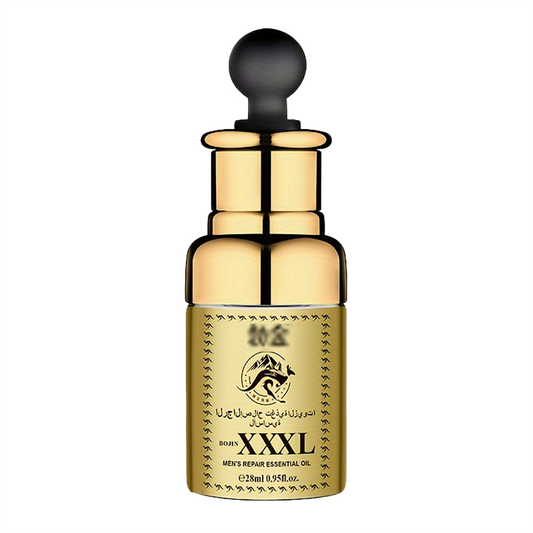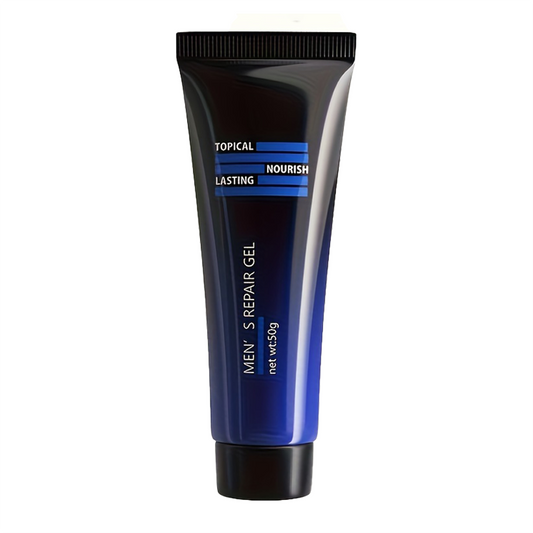Understanding Low Libido in Men: Causes and Solutions
Understanding Low Libido: What Does It Mean?
Low libido in men refers to a decreased interest in sexual activity, which can result from various psychological, physical, and lifestyle factors. Understanding the causes of low libido is crucial for developing effective strategies to address it.
Common Factors Affecting Libido
Several factors can influence an individual's libido, including:
-
Psychological Factors
- Stress and Anxiety: High stress levels from work or personal life can dampen sexual drive.
- Depression: Mental health issues such as depression can significantly reduce interest in sex.
- Relationship Issues: Problems within a relationship can create emotional distance, diminishing sexual desire.
-
Physical Factors
- Hormonal Imbalances: Low testosterone levels can lead to reduced libido.
- Chronic Illnesses: Conditions such as diabetes, heart disease, and obesity can affect sexual health.
- Medications: Certain medications, including antidepressants, can negatively impact sexual desire.
-
Lifestyle Factors
- Diet and Exercise: Poor nutrition and lack of exercise can contribute to low energy levels and libido.
- Sleep Patterns: Insufficient or poor-quality sleep can decrease testosterone levels and libido.
- Substance Abuse: Excessive alcohol consumption and drug use can impair sexual function.
Impact on Sexual Health
Understanding the broader implications of low libido is essential. Chronic low libido can lead to:
- Sexual Performance Issues: Problems such as erectile dysfunction may arise, necessitating exploration of solutions like how to achieve stronger erections.
- Relationship Challenges: Sexual dissatisfaction can strain relationships, where recommendations on improving sex life may help.
Connection to Daily Habits
Daily habits and lifestyle choices impact sexual health significantly. Factors such as:
- Daily Sexual Activity: While regular sexual activity can be beneficial, over-engagement may lead to drawbacks, including physical and emotional exhaustion.
- Consumption Patterns: Watching porn excessively can desensitize sexual arousal, leading to reduced interest in real-life sexual activities. It may be beneficial to explore ways to stop watching porn for good.
Practical Solutions
To improve libido, one can consider:
- Healthy Lifestyle Changes: Implementing a balanced diet, regular exercise, and adequate sleep.
- Stress Management: Techniques like mindfulness and meditation to reduce stress.
- Kegel Exercises: Both men and women may benefit from exploring Kegel exercises. These exercises strengthen pelvic floor muscles, which can enhance sexual performance and satisfaction.
Psychological Aspects
Understanding the psychology of desire is integral. Sexual attraction and libido can be influenced by subconscious psychological factors, intricate complex chemistries, and emotional connections. Addressing mental health and fostering emotional intimacy are pivotal steps towards a healthy libido.
Common Causes of Low Sex Drive in Men
Psychological Factors
- Stress and Anxiety: Chronic stress and anxiety can lead to decreased libido in men by affecting hormone levels and overall mental health. The overload of stress may also interfere with sexual attraction, making it harder for men to feel desire.
- Depression: Depression often diminishes interest in previously enjoyable activities, including sex. Men with depression may experience low libido due to disrupted dopamine and serotonin levels.
- Performance Anxiety: Worrying about sexual performance can lead to a self-fulfilling prophecy where anxiety results in erectile dysfunction or a lack of desire.
- Relationship Issues: Interpersonal problems, lack of emotional intimacy, and unresolved conflicts can negatively impact sexual drive. Communication is essential in resolving these issues and improving the sex life.
Physical Factors
- Hormonal Imbalance: Low testosterone levels can significantly reduce sexual desire. Hormonal fluctuations can be caused by various factors including age, medical conditions, and certain medications.
- Medical Conditions: Chronic illnesses such as diabetes, heart disease, and obesity can impair sexual drive. Additionally, these conditions often come with medications that have libido-suppressing side effects.
- Medications: Certain medications including antidepressants, blood pressure drugs, and medications for chronic pain can lead to decreased sexual desire.
- Substance Abuse: Alcohol, nicotine, and drug abuse can interfere with sexual function and reduced libido. In particular, prolonged substance abuse can cause long-term damage to sexual health.
Lifestyle Factors
- Lack of Exercise: Physical inactivity can contribute to obesity and poor cardiovascular health, which in turn negatively affects sexual desire. Exploring Kegel exercises for both men and women can improve sexual function and libido.
- Poor Diet: Nutrient deficiencies and a diet high in processed foods and sugars can affect overall health and energy levels, leading to decreased libido.
- Sleep Deprivation: Not getting enough sleep can result in lower testosterone levels, which is linked to reduced sex drive. Achieving better sleep hygiene is crucial for maintaining healthy libido levels.
- Pornography Consumption: Overconsumption of pornography can desensitize the brain to real-life sexual experiences. For men, stop watching porn for good can significantly improve sexual desire and performance.
Social and Environmental Factors
- Work Environment: High-pressure jobs and a demanding work schedule can contribute to mental fatigue and stress, leaving little energy or desire for sexual activity.
- Financial Stress: Financial difficulties can lead to anxiety and depression, further diminishing libido.
- Cultural and Religious Beliefs: Certain cultural or religious beliefs may influence one's attitude towards sex and affect sexual desire and behavior.
Addressing these common causes involves a multifaceted approach, including psychological interventions, lifestyle modifications, and medical treatments as needed. Identifying and managing these factors is the first step toward improving sexual health and libido in men.
Physical Health Factors Affecting Libido
Low libido in men can be influenced by various physical health factors, which can significantly impact sexual desire and performance. Understanding these factors is crucial for identifying potential solutions.
Hormonal Imbalances
Testosterone is a key hormone that plays a significant role in maintaining libido. Low testosterone levels can lead to reduced sexual desire and erectile dysfunction. Hormonal imbalances can result from aging, medical conditions, or lifestyle choices.
Chronic Illnesses
Certain chronic illnesses, such as diabetes, heart disease, and high blood pressure, can negatively affect libido. These conditions can impair blood flow and nerve function, which are essential for sexual arousal and performance.
Medications
Some medications, including antidepressants, antihypertensives, and medications for epilepsy, may have side effects that decrease libido. Men taking these medications should consult with their healthcare providers to explore alternative treatments or adjustments.
Lifestyle Factors
Unhealthy lifestyle choices, such as poor diet, excessive alcohol consumption, smoking, and lack of physical activity, can significantly impact libido. These habits can lead to decreased energy levels, obesity, and other health issues that affect sexual performance.
Psychological Stress
While primarily a mental health concern, psychological stress directly affects physical health. High stress levels can interfere with the body's hormonal balance and lead to fatigue and decreased libido. Understanding the psychology of desire and chemistry can help address these issues.
Sleep Disorders
Sleep disorders, like sleep apnea and insomnia, can lead to chronic fatigue and reduced sexual desire. Proper treatment and management of sleep disorders are essential for maintaining a healthy libido.
Obesity
Obesity is associated with decreased levels of testosterone and increased risk of conditions like diabetes and cardiovascular disease, which can impact sexual health. Weight reduction through diet and exercise can help improve libido.
Substance Abuse
Excessive use of alcohol and recreational drugs can impair sexual function and reduce libido. Avoiding or reducing substance use can help restore sexual health.
Physical Activity
Regular physical activity improves cardiovascular health, increases energy levels, and enhances mood, all of which contribute to a healthier libido. Exploring kegel exercises for both men and women also provides supportive benefits for sexual health.
Sexual Activity
Engaging in daily sexual activity might have drawbacks for some men and women, such as physical fatigue and reduced sexual desire. Balancing sexual activity frequency is key to maintaining a healthy libido.
Proper attention to these physical health factors can significantly improve low libido in men, leading to a more fulfilling and satisfying sex life. Keywords such as appropriate exercise, balanced diet, and understanding arousal mechanisms should guide one through the process of enhancing libido effectively.
Psychological and Emotional Influences
Many psychological and emotional factors impact low libido in men. Mental health significantly contributes to sexual desire. Anxiety and depression can both diminish libido, as these conditions often reduce energy levels and interest in pleasurable activities. Stress is another critical factor; the pressure to perform at work or home can dampen sexual appetite.
Top Factors Affecting Libido
Several influential factors hinder high libido in men:
- Mental Health: Anxiety and depression affect hormone levels, leading to reduced libido.
- Stress: Chronic stress produces cortisol, which lowers testosterone, essential for sexual desire.
- Relationship Issues: Problems with trust, communication, or intimacy reduce sexual attraction.
- Body Image: Negative self-image impacts confidence, affecting sexual initiation and enjoyment.
The Impact of Pornography
Engaging in frequent pornography viewing can alter sexual expectations and diminish real-life intimacy. Understanding the 9 effective methods to stop watching porn for good can help restore natural libido levels.
Daily Sexual Activity Drawbacks
While engaging in regular sexual activity has health benefits, it may also present drawbacks. Daily activity can lead to physical fatigue, decreased sperm count, or increased performance anxiety. Striking a balance is crucial for maintaining a healthy libido.
Improving Mental Well-Being
Addressing low libido involves improving mental well-being:
- Therapy: Engaging in therapy can provide a space to address underlying emotional or psychological issues.
- Stress Management: Techniques such as mindfulness, yoga, or kegel exercises can improve stress levels.
- Communication: Strengthening communication skills within relationships can boost emotional intimacy and sexual attraction.
Achieving Stronger Erections
For men seeking to enhance their libido, focusing on physical health is essential. Here are 7 useful tips:
- Diet: Consume a balanced diet rich in nutrients.
- Exercise: Regular physical activity improves blood flow.
- Sleep: Prioritize adequate sleep every night.
- Avoid Substances: Reduce alcohol and quit smoking.
- Mental Health: Address anxiety or depression.
- Consistent Routine: Maintain a healthy daily routine.
- Kegel Exercises: Strengthening pelvic floor muscles.
Understanding these psychological and emotional influences can help men regain control over their sexual health and desire.
Lifestyle and Environmental Impact
Lifestyle and environmental factors play a significant role in influencing low libido in men. Understanding these elements can help in addressing and improving sexual health.
Top Factors Affecting Libido
Several factors can impact a man's libido, including:
- Stress and Anxiety: Chronic stress and anxiety can reduce testosterone levels, leading to decreased libido.
- Diet and Nutrition: Poor diet, lack of essential nutrients, and high consumption of processed foods can negatively affect sexual desire.
- Physical Inactivity: Lack of regular exercise can lead to obesity and cardiovascular issues, both of which can impair sexual function.
- Sleep Quality: Insufficient or poor-quality sleep disrupts hormonal balance, impacting libido.
- Substance Use: Excessive consumption of alcohol, tobacco, and drugs can lower testosterone levels and reduce sexual desire.
- Pornography Consumption: Overconsumption of pornography can distort sexual expectations and lead to decreased interest in real-life sexual activity.
- Relationship Issues: Emotional disconnect and unresolved conflicts can diminish sexual attraction.
Environmental Impact
Environmental factors that contribute to low libido include:
- Exposure to Endocrine Disruptors: Chemicals found in plastics, pesticides, and personal care products can mimic hormones in the body and disrupt endocrine function.
- Toxins and Pollution: High levels of pollution and exposure to toxins can negatively affect overall health and reduce libido.
- Social Factors: Cultural and social norms, including stress from work or societal expectations, can impact sexual health.
Solutions to Improve Libido
To effectively address low libido caused by lifestyle and environmental factors, consider the following solutions:
- Stress Management: Engage in stress-reducing activities such as yoga, meditation, or deep breathing exercises.
- Nutritious Diet: Incorporate a balanced diet rich in vitamins, minerals, and antioxidants to support hormonal health.
- Physical Activity: Regular exercise improves blood flow, boosts mood, and enhances energy levels.
- Sufficient Sleep: Aim for 7-8 hours of quality sleep per night to maintain a healthy hormonal balance.
- Limit Substance Use: Reduce or eliminate the use of alcohol, tobacco, and recreational drugs.
- Healthy Relationships: Foster open communication and resolve conflicts to strengthen emotional connections.
- Reduce Pornography Consumption: Consider limiting or stopping the consumption of pornography to improve real-life sexual experiences.
Additional Techniques
To further enhance libido and sexual health, consider:
- Kegel Exercises: These exercises strengthen the pelvic floor muscles, improving sexual function for both men and women.
- Erection-Friendly Habits: Simple tips like maintaining a healthy weight and avoiding tight clothing can contribute to stronger erections.
Understanding and addressing these lifestyle and environmental impacts can lead to improved libido and overall sexual well-being.
Effective Treatments and Strategies for Improving Libido
Improving libido in men requires a multifaceted approach that addresses the underlying causes while incorporating effective treatments and strategies. Identifying the top 10 factors that affect high libido in men is essential for creating a tailored plan. These factors include hormonal imbalances, psychological issues, stress, poor diet, lack of exercise, inadequate sleep, substance abuse, relationship problems, excessive porn consumption, and the natural aging process.
Medical Interventions
Medical evaluations and treatments can play a crucial role in managing low libido. Potential medical interventions include:
- Hormone Replacement Therapy (HRT): To address low testosterone levels.
- Medications: Such as phosphodiesterase inhibitors to aid in achieving stronger erections.
- Counseling: To address psychological factors impacting libido.
Lifestyle Modifications
Adopting healthier lifestyle habits can significantly enhance libido. Recommended modifications include:
- Exercise: Regular physical activity, including strength training and aerobic exercises, can boost testosterone levels and improve mood.
- Diet: A balanced diet rich in vitamins, minerals, and antioxidants promotes overall health and sexual function.
- Stress Management: Techniques such as mindfulness, meditation, and deep-breathing exercises can alleviate stress and improve sexual desire.
Psychological Approaches
Addressing the psychological aspects of low libido is vital. Strategies include:
- Therapy: Engaging in individual or couples therapy can resolve underlying psychological issues and relationship conflicts.
- Kegel Exercises: Specifically exploring Kegel exercises for both men and women to strengthen pelvic floor muscles and enhance sexual performance.
Behavioral Changes
Certain behaviors can negatively impact libido. Addressing these behaviors involves:
- Avoiding Pornography: Men might consider methods to stop watching porn for good, such as setting limits, seeking support groups, or replacing the habit with healthier activities.
- Limiting Sexual Activity: Understanding the drawbacks of engaging in daily sexual activity for both men and women may also help in maintaining a healthier libido.
Enhancing Sexual Attraction
Improving sexual attraction requires an understanding of the psychology of desire and chemistry. This can be achieved by:
- Relationship Building: Fostering emotional intimacy and connection with a partner.
- Novelty: Introducing new experiences or activities to maintain excitement and attraction in the relationship.
By addressing these key areas, men can effectively enhance their libido and improve overall sexual satisfaction. Strategies must be individualized, considering the unique factors affecting each person.
















































































































